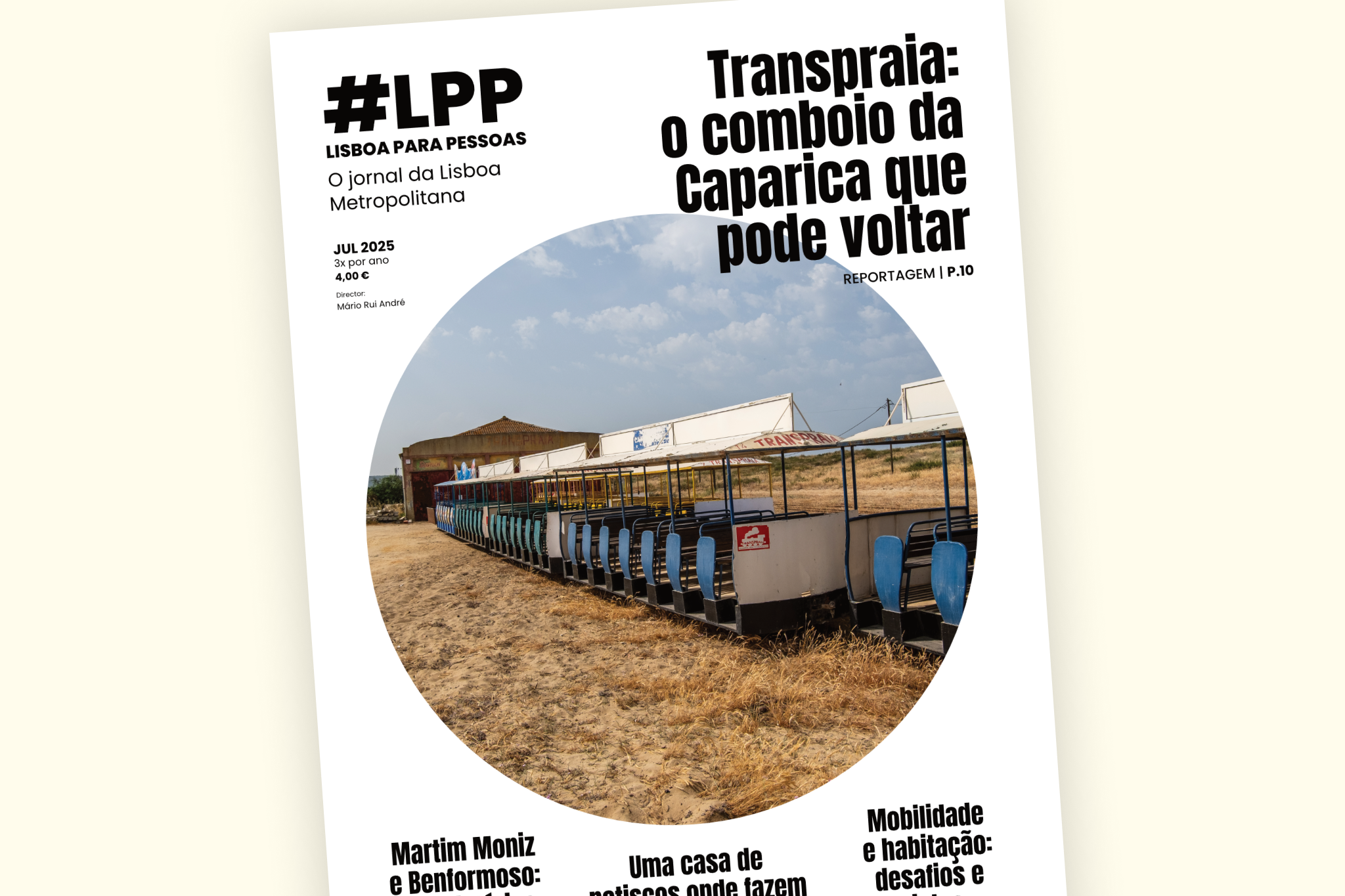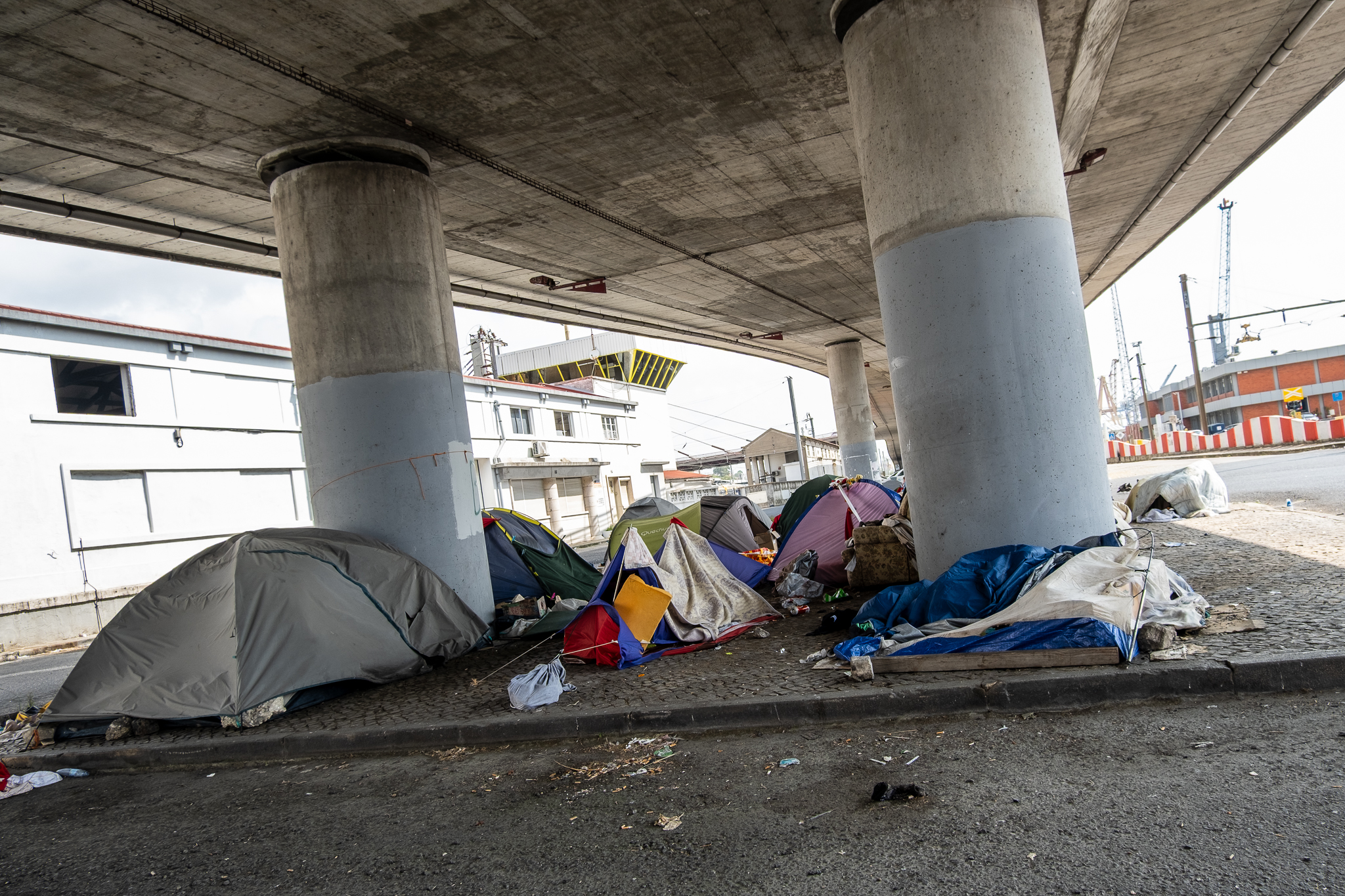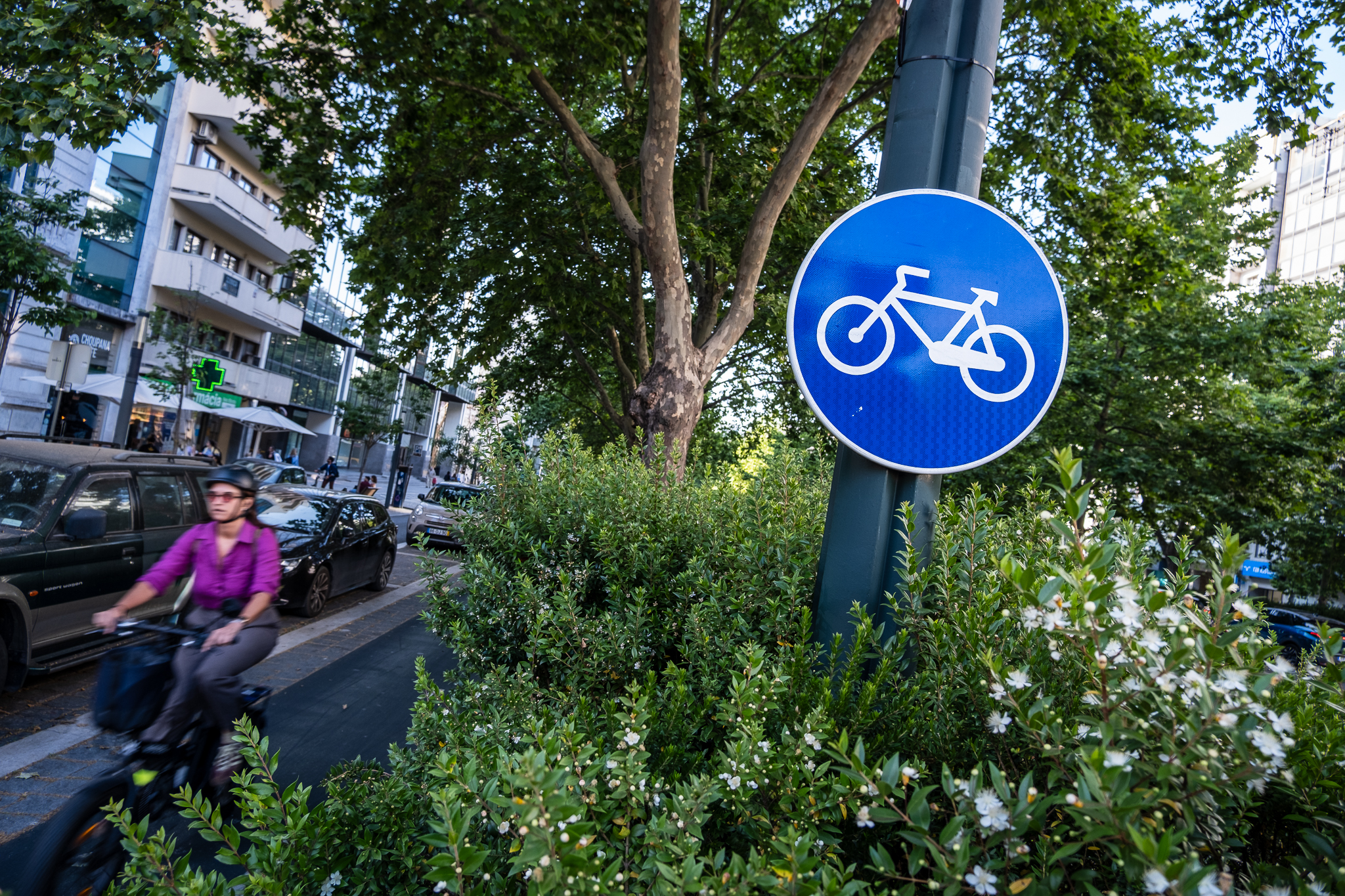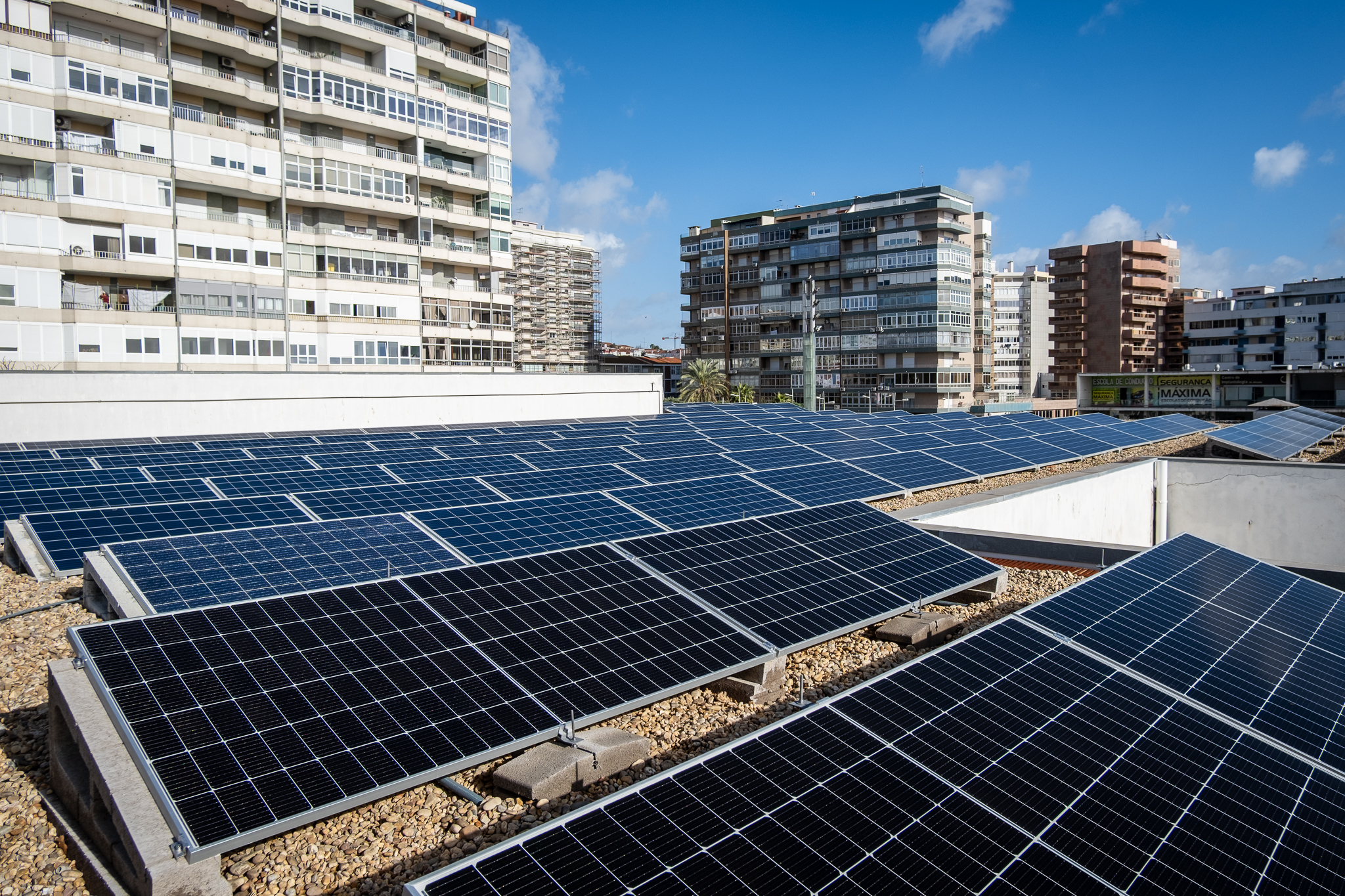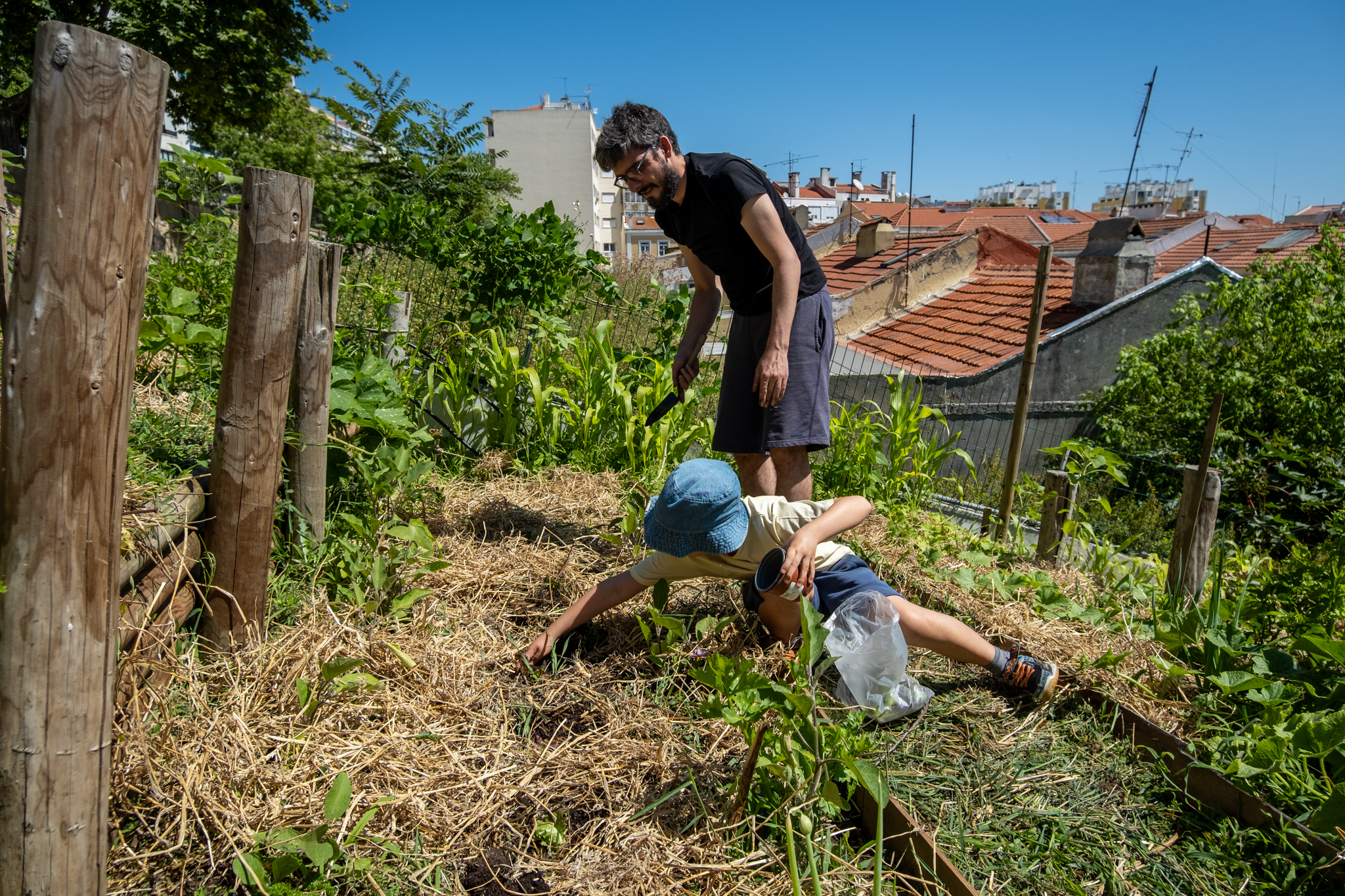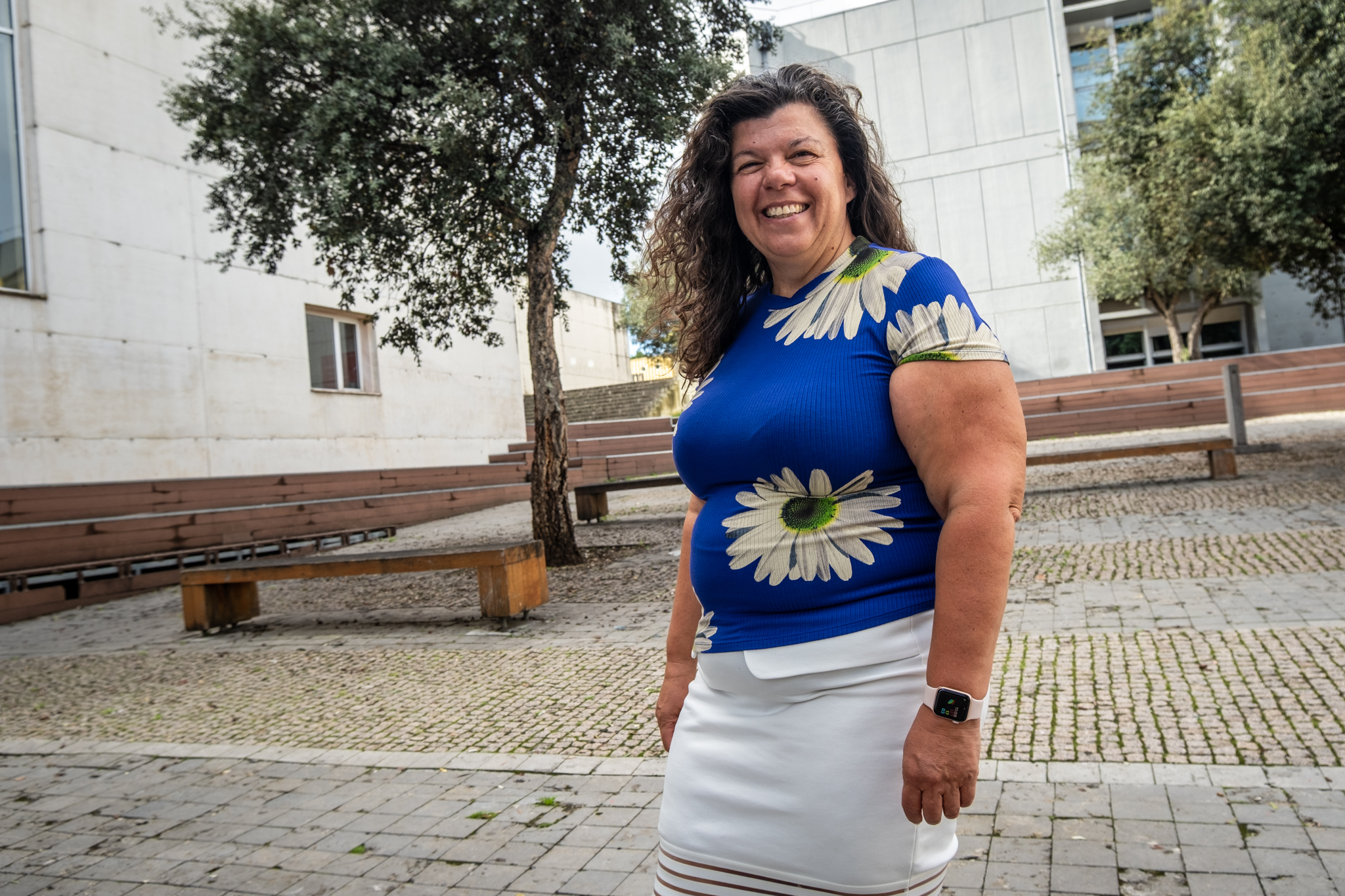Still very car-centric, Alverca could become a more pedestrian and cycle-friendly city, based on Carlos Moreno's "15-minute city" concept. Two private projects promise to promote a model of greater proximity in Alverca; at the same time, the city is taking part in a European program with Paris, Barcelona and Bucharest.
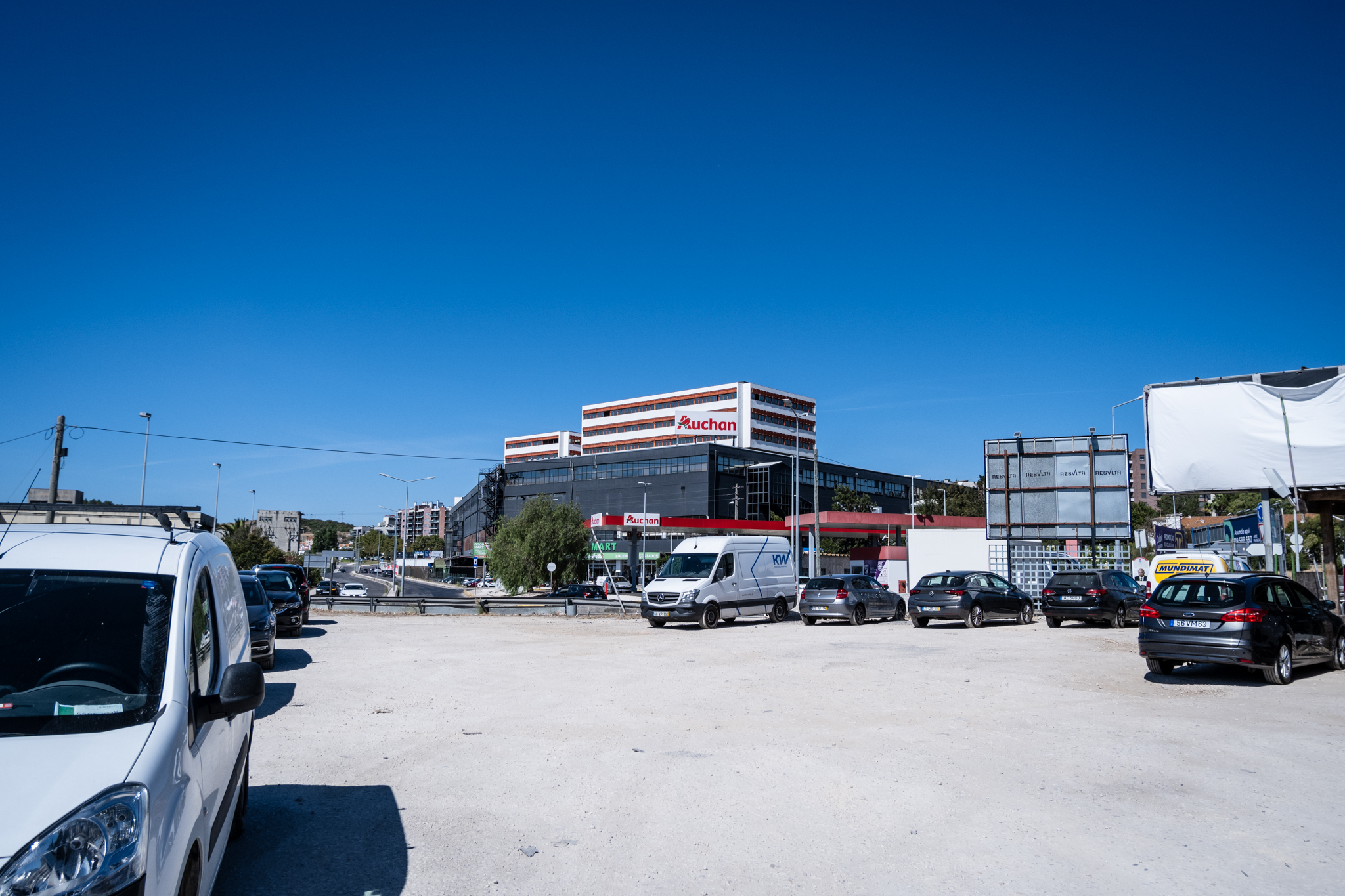
The "15-minute city" has become a buzzphrase used in political communication and also in the world of business marketing, at the risk of emptying the concept and its value. Alverca is the latest Portuguese town to want to be a "15-minute city", after Lisbon started working on this concept.
The city of Vila Franca de Xira, which is still very car-centric and has an industrial past, seems committed to making the transition to a city where walking or even cycling can take on a more prominent role, and where the population can find most of their daily needs met within a 15-minute radius, without a car - living, working, consuming, accessing care, educating and enjoying themselves. The concept of the "15-minute city" is not exactly new - this idea of proximity cities, with several multifunctional centers, has been around for a long time, but it has been Carlos Morenoprofessor at the Sorbonne University (Paris) and advisor to the Paris City Council, who recently popularized it with a simple-to-understand slogan.

15 minutes with two private hitchhikers
Fernando Paulo Ribeiro, Mayor of Vila Franca de Xira, revealed at the last meeting of the Municipal Executive before the vacations, on July 27, that Alverca has in progress two major private projects that will improve pedestrian and cycling accessibility and create new centralities in the municipality with a "15-minute city" perspective. One of them is the construction of the first Mercadona supermarket, which is taking place on a wasteland between the transport interface, where the trains and buses meet, and the central part of the city. The construction of the supermarket has, as usual, counterparts for the urban area where it is located; in the case of Alverca, "It will allow important rearrangements in the road organization of the surrounding area with a substantial improvement in pedestrian circulation, namely from the center of Alverca to the schools and from the center of Alverca to the station"said Fernando Paulo Ribeiro.

Next to the future Mercadona is the second private investment that promises to give a new face to the city of Alverca. It is Alverca Commercial Gallery where an Auchan supermarket now stands, will be rehabilitated to diversify the functions of the building complex, which has been neglected for the last 30 years. In addition to the existing Auchan supermarket, the building will include a Leroy Merlin store, a Citizen's Bureau, a gym, a parapharmacy, a recreational and sports area open to all, and more than 100 housing units, through the conversion of the offices of the old Alverca Towers.
This entire investment - of 32 million euros in a block with a gross construction area of 78,000 square meters - will be the responsibility of the Portuguese subsidiary of the French company Nhood, a real estate developer focused on mixed-use buildings that belongs to the Mulliez Family, owner of Auchan and Leroy Merlin. The building will now have 1800 m2 gardens and vegetated roofs, 4650 m2 of permeable areas and will have more than 900 photovoltaic panels. In order to strengthen the connection to the city and promote soft mobility, it will be integrated with the city's cycle path network, namely with the extension of the EN10 cycle path. The project will create more than 100 direct jobs and is expected to create more than 200 indirect jobs.

The start of construction is scheduled for later this year, with the first phase due to be completed in the summer of 2024. The first phase includes the entire retail area, while the conversion of the towers will be left to the second phase, which will begin in 2025. For the Mayor of Vila Franca de Xira, with this investment, the Galeria Comercial de Alverca "It will accentuate its urban quality, solving a decades-old problem, and will allow pedestrian interconnection as the gateway to the city of Alverca". Fernando Paulo Ribeiro said that the project falls under "at the beginning of the city of 15 minutes, whose creator, Carlos Moreno, professor at the Sorbonne in Paris, who has already met with us".
Alverca next to Paris, Barcelona and Bucharest
Alverca also won a "European network project to renew the urban quality of Alverca and the green areas at the southern entrance to the city, which will allow us to build a new green and sports area in Malvarosa, next to the EN10, among other soft mobility investments"and in particular the cycle path on the N10. This networking brings Alverca together with the cities of Paris (France), Barcelona (Spain) e Bucharest (Romania); the four cities have had their application to a European Union program, under the initiative Horizon EuropeThis will help to renaturalize urban areas and create green spaces that are resilient and prepared for climate change. "Alverca, Paris, Barcelona and Bucharest thus share a new vision of a greener, more pedestrianized and more resilient city"described Fernando Paulo Ribeiro, for whom this networking and direct contact with the European Union is "increasingly important", "since the operational programs for the Lisbon region [programs such as Lisboa2020 that give access to European funds] are becoming less and less attractive, both from the point of view of the amount of money available and from the point of view of the investment that is co-financed by Europe".

The European program has 40 million euros to distribute among the four cities over three years. To LPP, Carlos Moreno explained that "the Mayor of Vila Franca de Xira was interested in understanding the topic of the 15-minute city and how it could be adapted to Alverca, and I proposed that he be part of a consortium under this European program". Moreno considers it to be "a very ambitious project to create green and prosperous neighborhoods". The fact that Alverca is a very industrial and car-centric city "is the interesting part of your participation in the program"says the expert, explaining that the proposal is to "to develop an ambitious 'road map' for cities to move from a car-centric model to a model of more livable, cyclable, polycentric cities. This is possible with the application of the 15-minute theory"
According to Carlos Moreno, this program brings together cities with private partners as well as academia. In the case of Alverca, the work is being carried out, as already mentioned, with the Instituto Superior Técnico and also with Nhood, which is a partner of the Sorbonne University (Paris), where Moreno works. "We have a significant collaboration with Nhood, a private company that manages urban systems and was interested in developing the 15-minute city concept"he detailed.

At the same time, the municipality of Vila Franca de Xira is in the process of finish your riverside walk; a section between Alverca and Sobralinho was missing, work that is now being done for 6.179 million euros. "The riverside path will bring Alverca closer to the river, even more so when the Loures riverside path has already reached the southern limit of our path, which will connect us by pedestrian to Parque das Nações, accentuating our metropolitan role of soft mobility."said the Mayor. The new section is 4.9 km long and covers an area of approximately 14.1 hectares.


With the opening of the Loures River PathWith the completion of the walkways and trails on the Vila Franca de Xira side, it will now be possible to walk or cycle along the entire north bank of the River Tagus, with the exception of a few discontinuities that still exist. It should be remembered that Lisbon has a project underway to resolving these discontinuities in its riverside territory and that Oeiras wants to complete its seafront promenade, namely by extending the cycle and pedestrian path between Caxias and Cruz Quebrada, where it will connect to the existing Algés seafront promenade.
Could a city like Alverca become a "15-minute city"? As Carlos Moreno explained in the interview that LPP published this yearThis theoretical concept can be adapted to different territories in different ways. Alverca has a very strong industrial side and many commercial warehouses, in an urban style where the car is still king. By adopting this theoretical concept, the city of Vila Franca de Xira can open up space for new pedestrian and cycling opportunities, promoting a gradual modal transition from the car-centric model.


